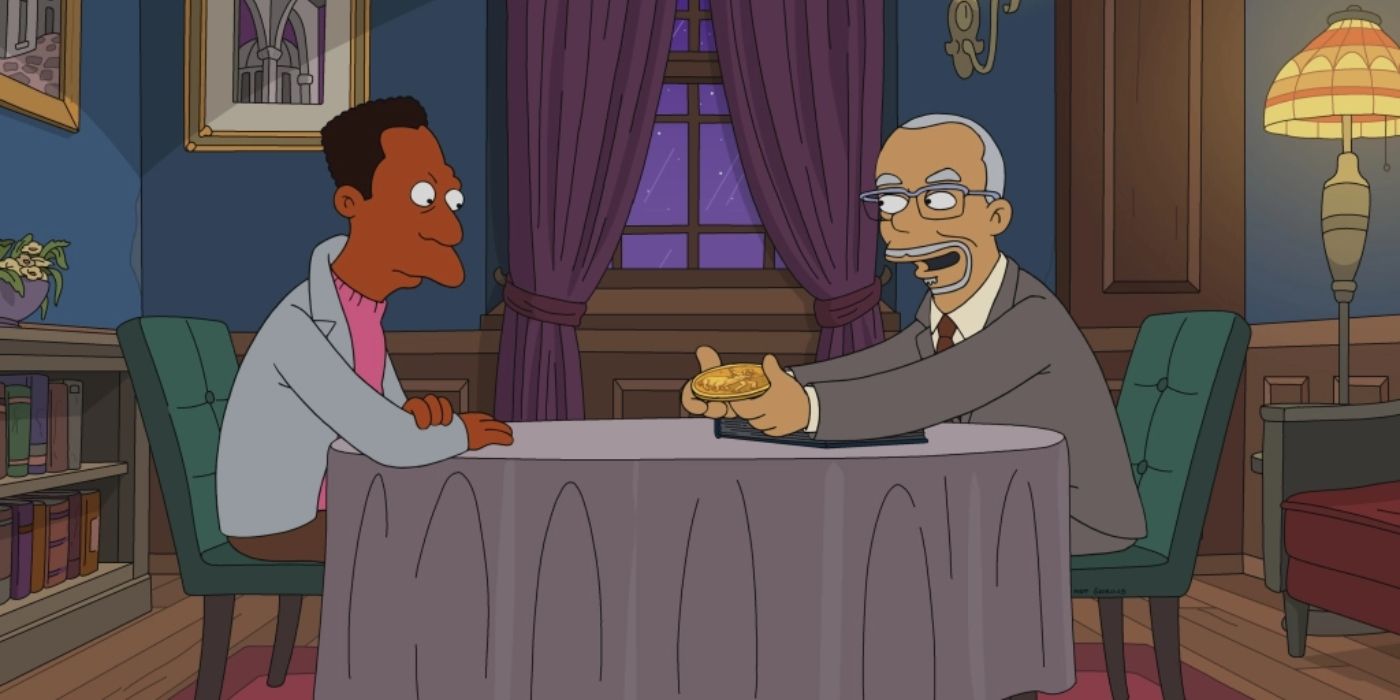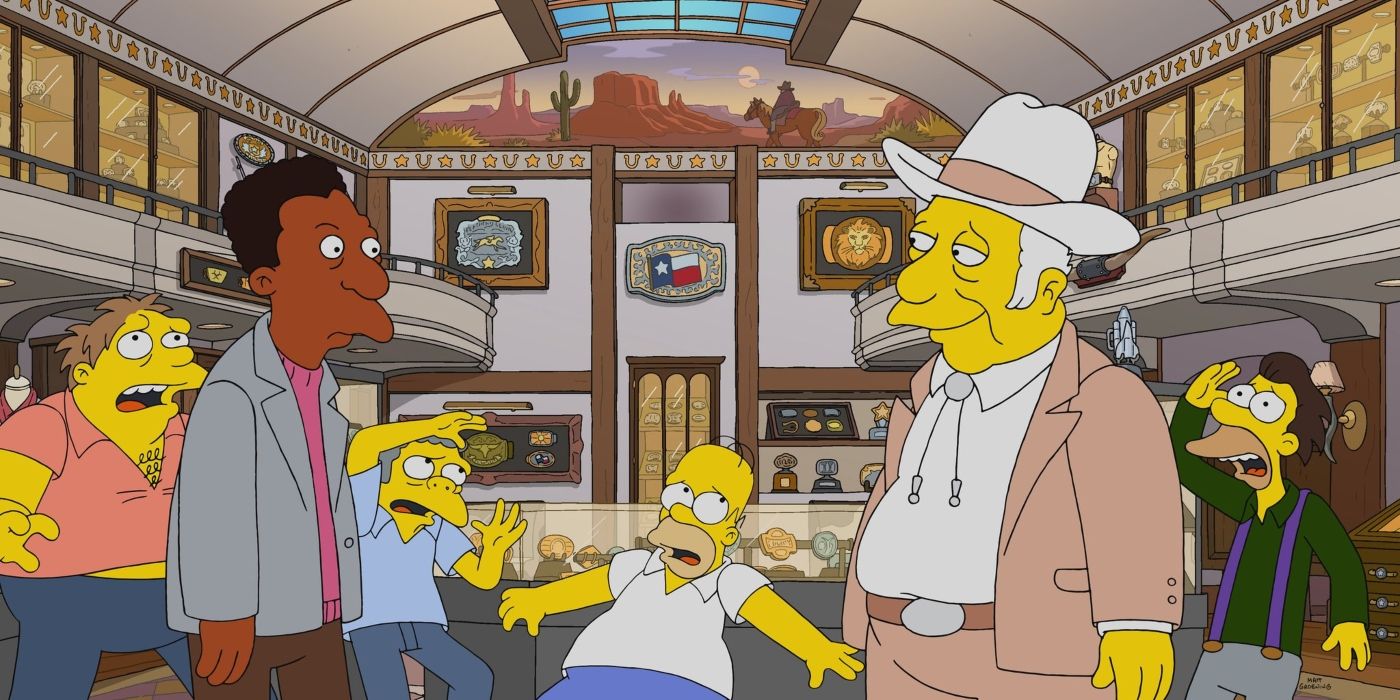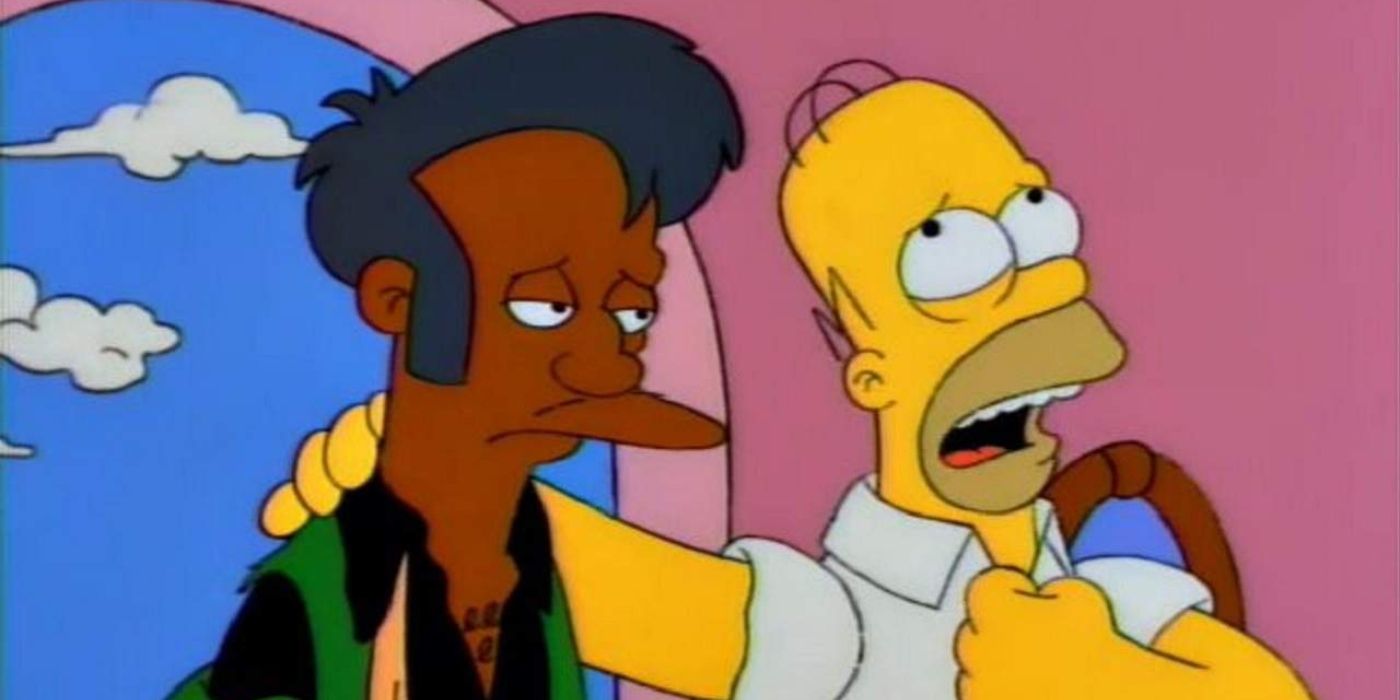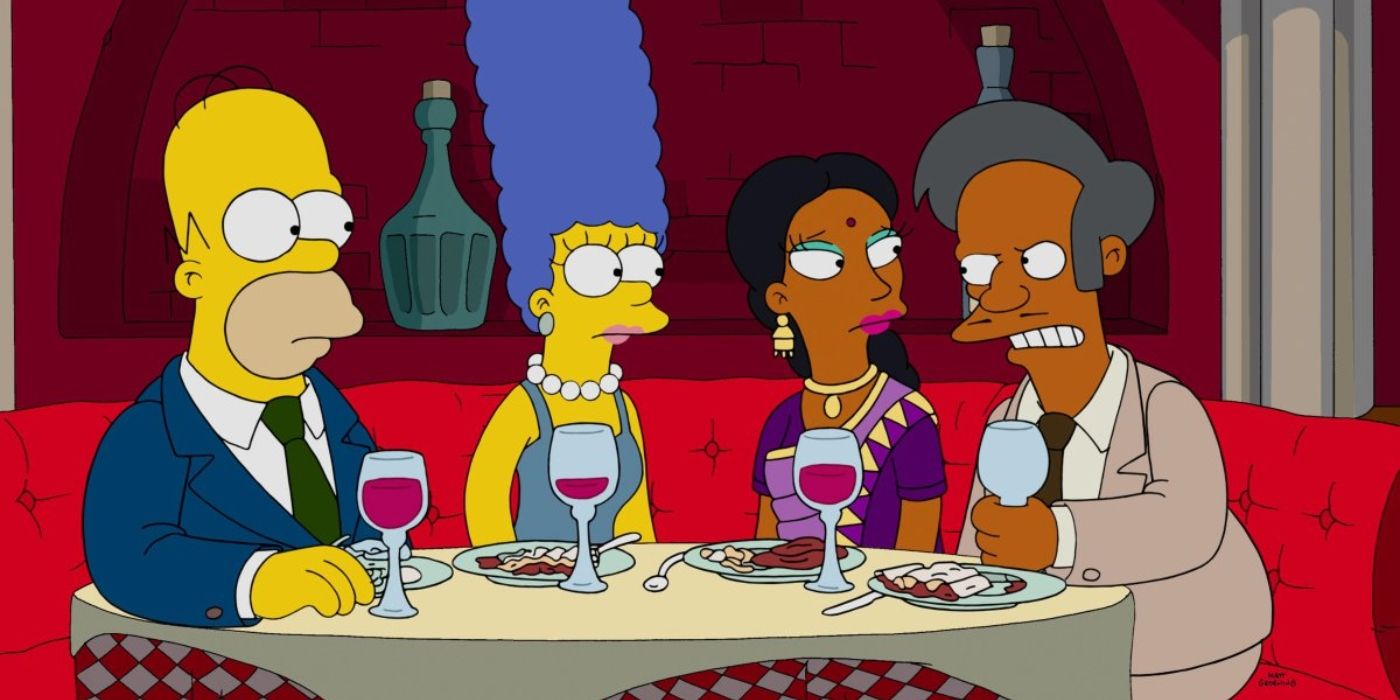The following contains minor spoilers for The Simpsons Season 34, Episode 14, "Carl Carlson Rides Again," which debuted Sunday, Feb. 26 on Fox.
"Carl Carlson Rides Again" is the latest episode of The Simpsons to take a hard look at itself and its legacy -- something the show has become increasingly willing to do in its later years. Sometimes, that comes across by returning to former spots of ridicule with a more pointed perspective. Other times, it's advancing characters who'd formerly been relegated largely to a punchline, like exploring Mr. Smithers' status as a gay man.
"Carl Carlson Rides Again" focuses on the tricky subject of race, which the show has faced controversy for in the past. It handles the topic deftly, allowing Carl to grow in-universe while also cheekily reexamining its own admittedly privileged position. It's the kind of episode that inspires hope that The Simpsons can continue to grow in this fashion -- and could even inspire a new approach to one of the show's most controversial characters, Apu Nahasapeemapetilon, in Seasons 35 and 36.
Why "Carl Carlson Rides Again" Is a Quietly Big Turn for The Simpsons
"Carl Carlson Rides Again" is one of the biggest showcases for Carl in The Simpsons. Although he's still almost always seen alongside his best friend Lenny Leonard, the later seasons of the show have spent time delving into their divergent personalities. And "Carl Carlson Rides Again" is a deeply self-reflective episode, as it focuses on Carl's internal struggle over his racial identity. Directed by Michael Polcino with a script by Loni Steele Sosthand, the episode sees Carl become attracted to Naima (voiced by Dawnn Lewis). Desperate to impress her, Carl attempts to embrace his heritage as a Black man -- something he openly tells the other regulars at Moe's he's unsure about.
His initial attempts to become more "black" come across as pandering, however, and initially drive Naima away. But as Carl learns more about his family's heritage in the Old West, he finds pride in his family's history as Black cowboys and ends the story more self-assured about himself and his identity -- even if his newfound pride leads him to make a foolhardy attempt to live up to his family's legacy. The episode works on a lot of levels, which is a credit to Sosthand, who's able to imbue the script with authenticity but not lose The Simpsons' standard subversive perspective. It can also work as a template of self-relection for The Simpsons as a whole.
While Carl shares some similarities with other portrayals of BIPOC on The Simpsons, he was largely spared many of the jokes that Springfield's other diverse characters had levied at them. While there were occasional gags about Carl's status as one of Springfield's only notable Black characters, he was far more defined by his blue-collar personality and friendships rather than stereotypes about his culture or nationality.
"Carl Carlson Rides Again" sees Carl -- who'd previously been revealed to have been raised by adoptive white parents in Iceland -- confront that fact and how he's never necessarily "felt" Black. The episode is consistently thoughtful and pointed in its exploration of this evolution. It helps that Carl had been recast with Alex Désert in Season 32, giving the episode a deeper sense of authenticity that benefits the character and the storyline. "Carl Carlson Rides Again" is a great exploration of Carl, and gives him more definition without sacrificing his traditional character elements. It's an approach that The Simpsons can apply to a potential return for Apu.
How Carl's Episode Could Justify Apu's Return to The Simpsons
"Carl Carlson Rides Again" invites comparisons between Carl and one of The Simpsons' most controversial characters: Apu. The Indian-born owner of the Kwik-E-Mart was one of the most commonly seen people of color in Springfield. While the character was the center of some thoughtful episodes about immigration and cultural change like Season 7's "Much Apu About Nothing," later episodes would largely deploy Apu as a problematic punchline.
Carl and Apu were both originally portrayed by the gifted comedian Hank Azaria, but Carl's voice was far more neutral than the pronounced and exaggerated dialect given to Apu. Critics have debated whether Apu was a worthwhile addition to Springfield or an unwittingly harmful stereotype, resulting in the character more or less being quietly retired by The Simpsons. "Carl Carlson Rides Again" proves that Apu doesn't need to be gone from The Simpsons -- changes could be made to expand the character just like Carl.
Recasting Apu with a performer of South Asian descent would be the first step, and authentically exploring his identity would add more depth to the character. "Carl Carlson Rides Again" is also notable for poking fun at its central Caucasian characters, who do their best initially to avoid the topic of race entirely (prompting Carl to call out their "avoidance sips" of beer at the bar). Marge is later seen reading a book about "White fragility," and walks through a number of things Homer shouldn't do or say -- a more overt and self-aware reflection of the show's history with race than The Simpsons' past responses.
All of this suggests that The Simpsons has grown enough to better accept criticism for its portrayal of minority characters, and is more invested in portraying them as fully-formed authentic individuals (similar to how the show has historically poked fun at Italian-American stereotypes with the purposefully exaggerated but deceptively complex Fat Tony). With The Simpsons increasingly embracing a more experimental and flexible approach to its story structure on top of a more progressive perspective, the right creative team could bring Apu back. "Carl Carlson Rides Again" makes the prospect of taking another shot at Apu a lot more intriguing now than it was before.
The Simpsons airs Sundays at 8:00 p.m. on Fox.




